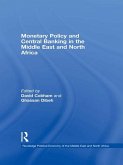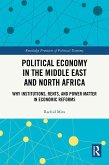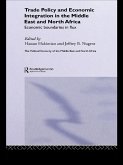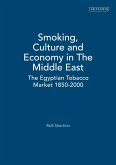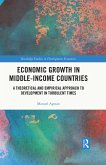The effect of foreign direct investment (FDI) on economic development has been widely debated. However, the real challenge is not only to examine the effect of FDI on economic development but to also investigate the most appropriate economic policies that are conducive to increasing levels of FDI. Ashraf Mishrif here addresses this challenge and examines the interplay between external and internal forces to determine whether recent EU-Egyptian trade agreements have led to any significant improvement in Egypt's investment environment and in the growth levels of European direct investment in the country. This important study makes a key contribution to our understanding of the inward investment strategies and options of the Arab World's most populous and powerful player. It will be an essential point of reference for all economists, bankers and investment advisors dealing with the Middle East.
Bitte wählen Sie Ihr Anliegen aus.
Rechnungen
Retourenschein anfordern
Bestellstatus
Storno



